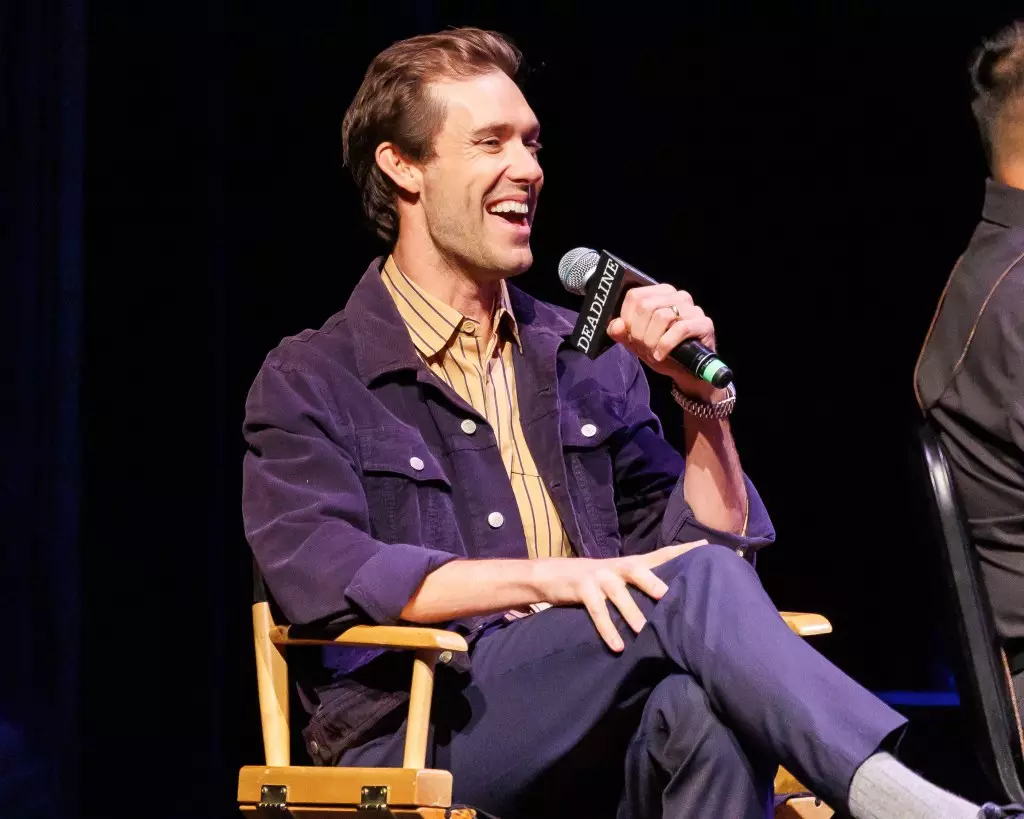In the dynamic world of modern pop music, where collaboration is often the heartbeat of creativity, songwriter Sean Douglas stands out with his impressive portfolio and innovative approach. Known for his work with a variety of global pop icons, including Demi Lovato, Madonna, and Selena Gomez, Douglas recently embarked on a unique artistic endeavor by co-writing the signature song “Harper and Will Go West” for the documentary featuring comedians Will Ferrell and Kristen Wiig. This project not only emphasizes his versatility as a songwriter but also highlights the intricate processes that lie behind crafting a compelling narrative in music.
Douglas likened the songwriting process to improv comedy, suggesting a playful yet structured dynamic akin to the principle of “Yes, and…” that defines collaborative performances. In his description, it becomes evident that the essence of songwriting, especially within his collaborative framework, revolves around building upon an initial idea—whether it be a melody, chord progression, or even a title. This method mirrors the organic evolution of comedic skits, where participants build upon one another’s ideas to enhance the humor and engagement of the audience.
The journey to create “Harper and Will Go West” was anything but conventional. Douglas had previously collaborated with filmmaker Josh Greenbaum, who directed Wiig in the comedy “Barb and Star Go to Vista Del Mar.” Together, they crafted an original concept, which was further shaped through mutual brainstorming sessions with Wiig. The resultant song is designed to encapsulate not only the themes of friendship and transformation but also to reflect the unique stylistic directives that the documentary demanded. Douglas mentions that the song’s requirements were diverse, needing a blend of jazz and folk influences that added complexity to their composition process.
Douglas articulated that capturing the full scope of the film’s narrative was a formidable challenge. The essence of the song needed to resonate humorously while simultaneously delivering a poignant message about friendship and acceptance throughout the characters’ journey. This balancing act of lightheartedness and seriousness is where Douglas truly shines, as he aims to transcend the mundane confines of typical pop songs.
The creative collaboration with Wiig brought about natural synergy, pushing the boundaries of what a theme song could embody within a documentary context. Douglas noted that he produces his best work when he gets to experiment with humor in songwriting. This notion highlights an underappreciated aspect of songwriting: the ability to traverse various emotional landscapes without losing coherence. Douglas lauded humorists like Randy Newman, who masterfully blend comedic narratives with serious themes, crafting songs that read like clever anecdotes rather than mere jokes.
His admiration for Wiig only punctuates the strength of their collaboration. Douglas describes her as “a national treasure,” recognizing not only her talent in comedy but also her impressive vocal abilities. This added layer of admiration further enhances the collaborative tableau that Douglas created, emphasizing that the success of their song was not merely due to the writing but also to the chemistry between the artists involved.
The song “Harper and Will Go West” serves as a testament to the evolving landscape of songwriting in contemporary music. It signals a potential shift in how songs can be crafted for film—proposing that there is room for humor, experimentation, and collaboration even within genres that traditionally hold tightly to formulaic structures. For Douglas, this opportunity represents a creative breath of fresh air amidst the routines of mainstream pop songwriting.
As audiences continue to seek out emotionally resonant content, the seamless blend of comedy and music offers a unique avenue for artists, one that challenges the conventions of the medium. The partnership between Douglas, Wiig, and the film crew reflects a new era of artistic exploration, where boundaries blur, and the process itself becomes as entertaining as the final product. Such innovative projects remind us that songs can be more than just catchy tunes—they can narrate profound stories, fostering connections that resonate deeply within us all.


Leave a Reply